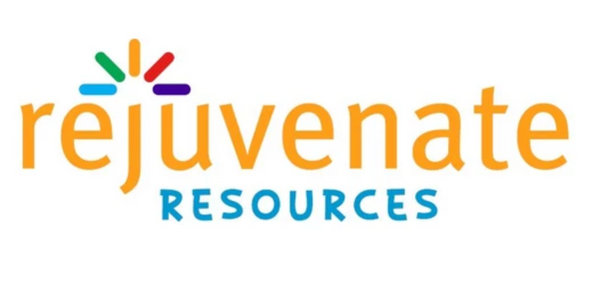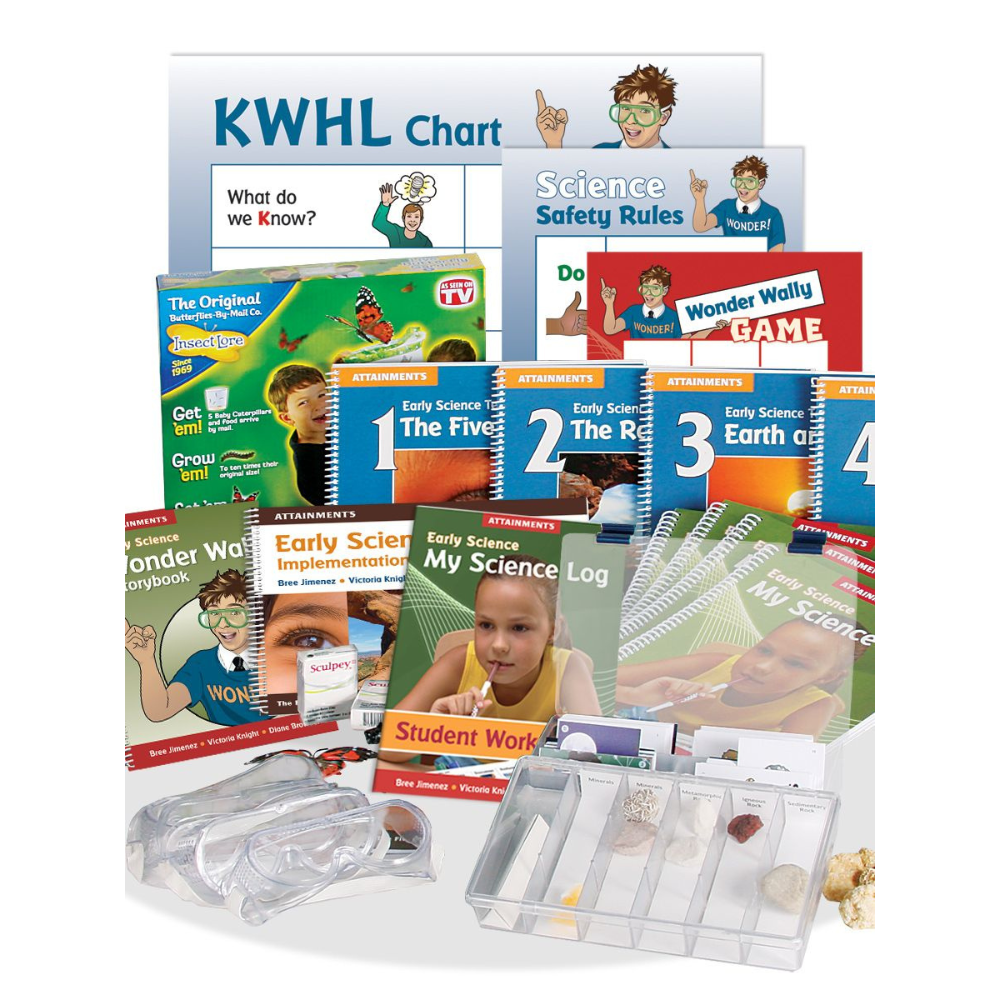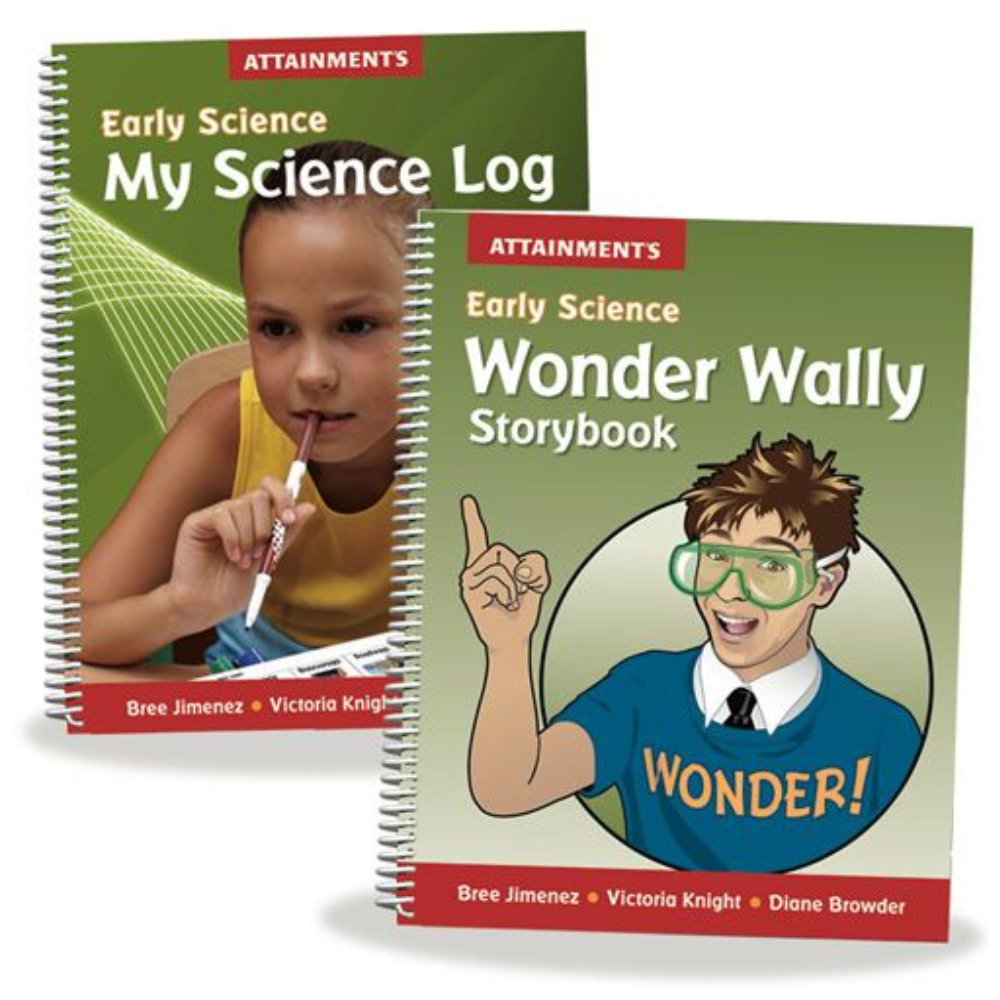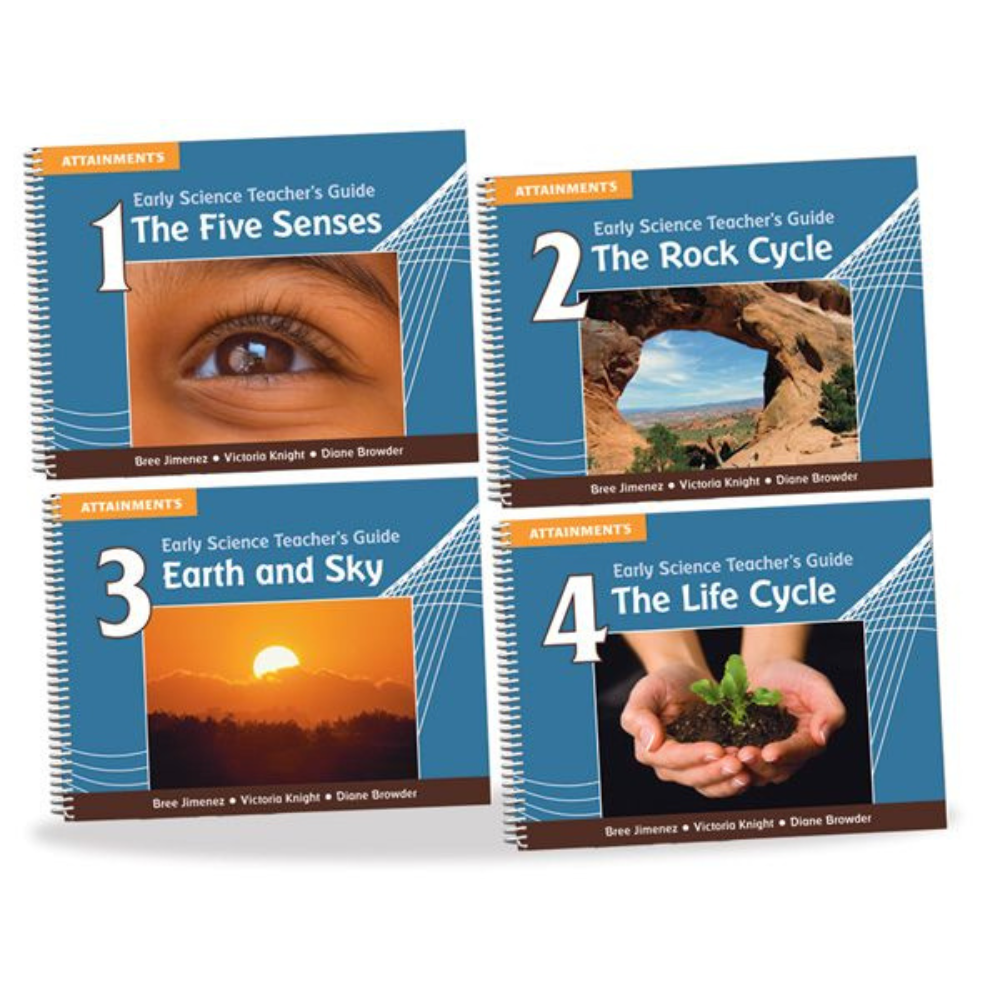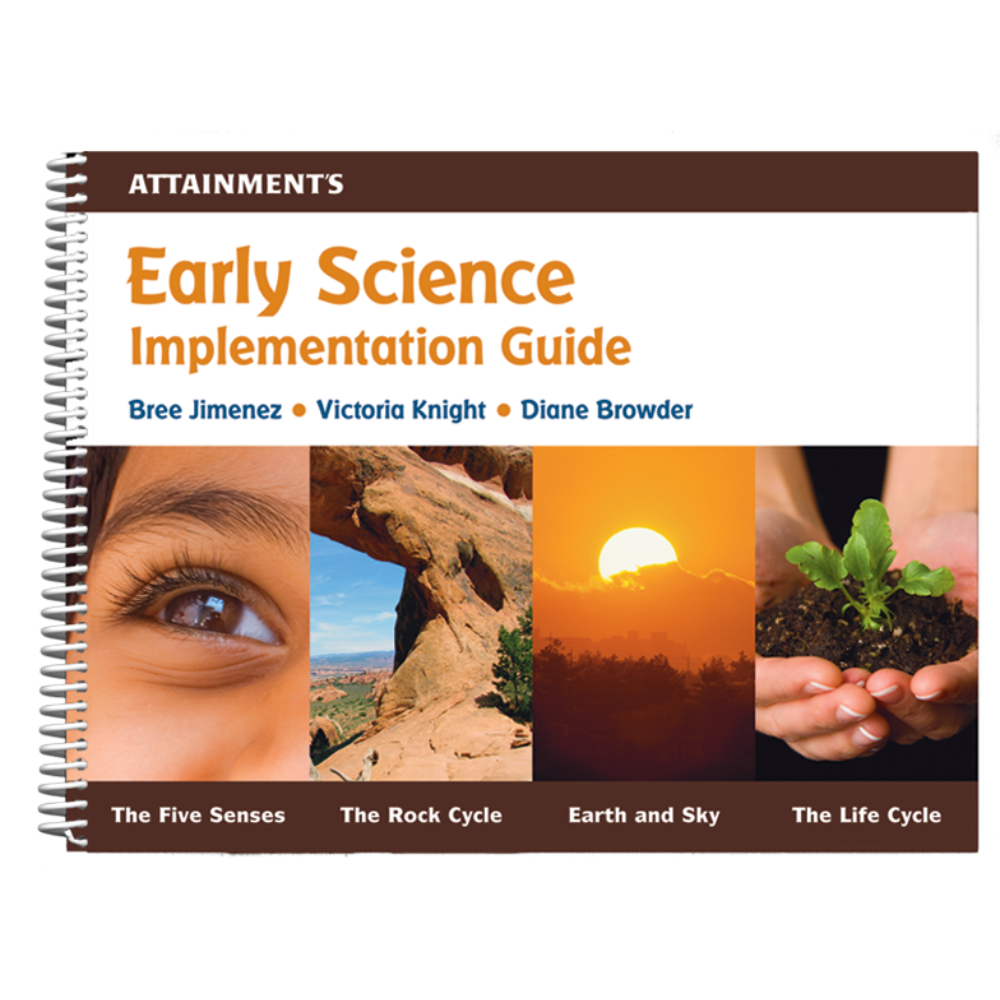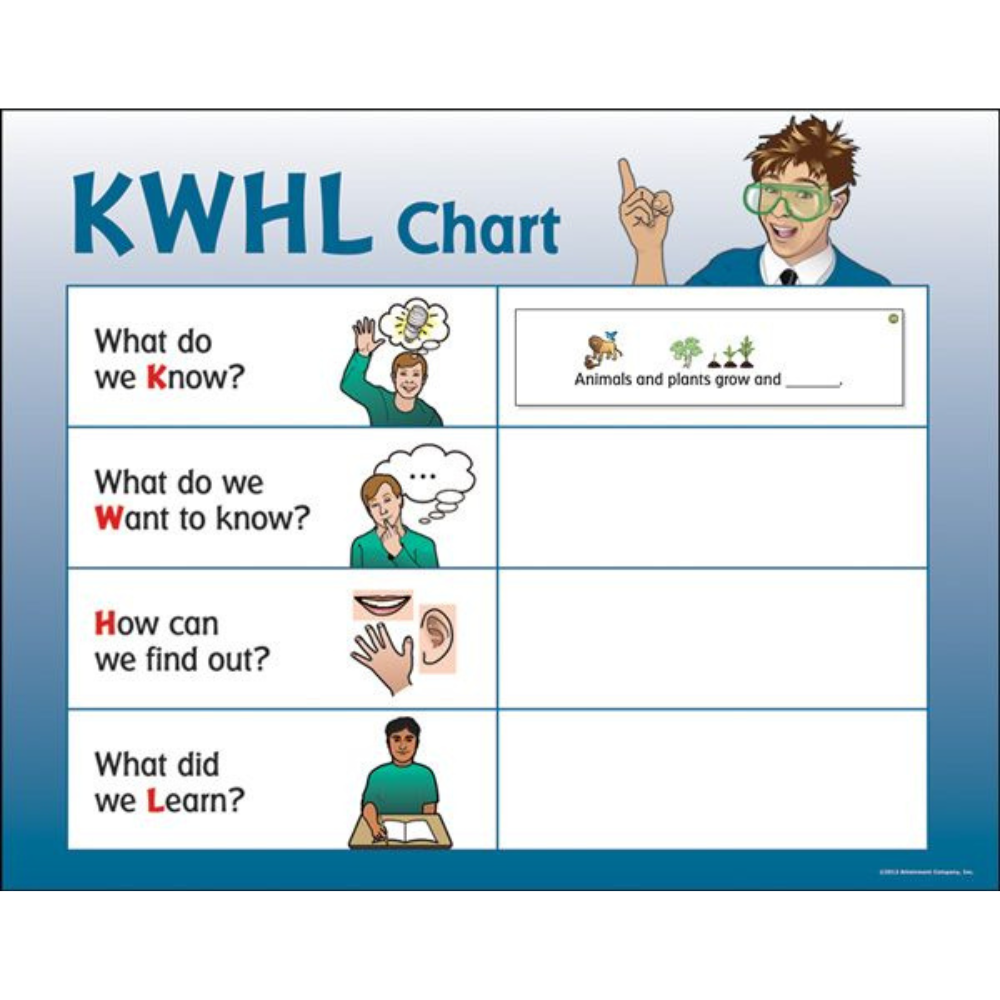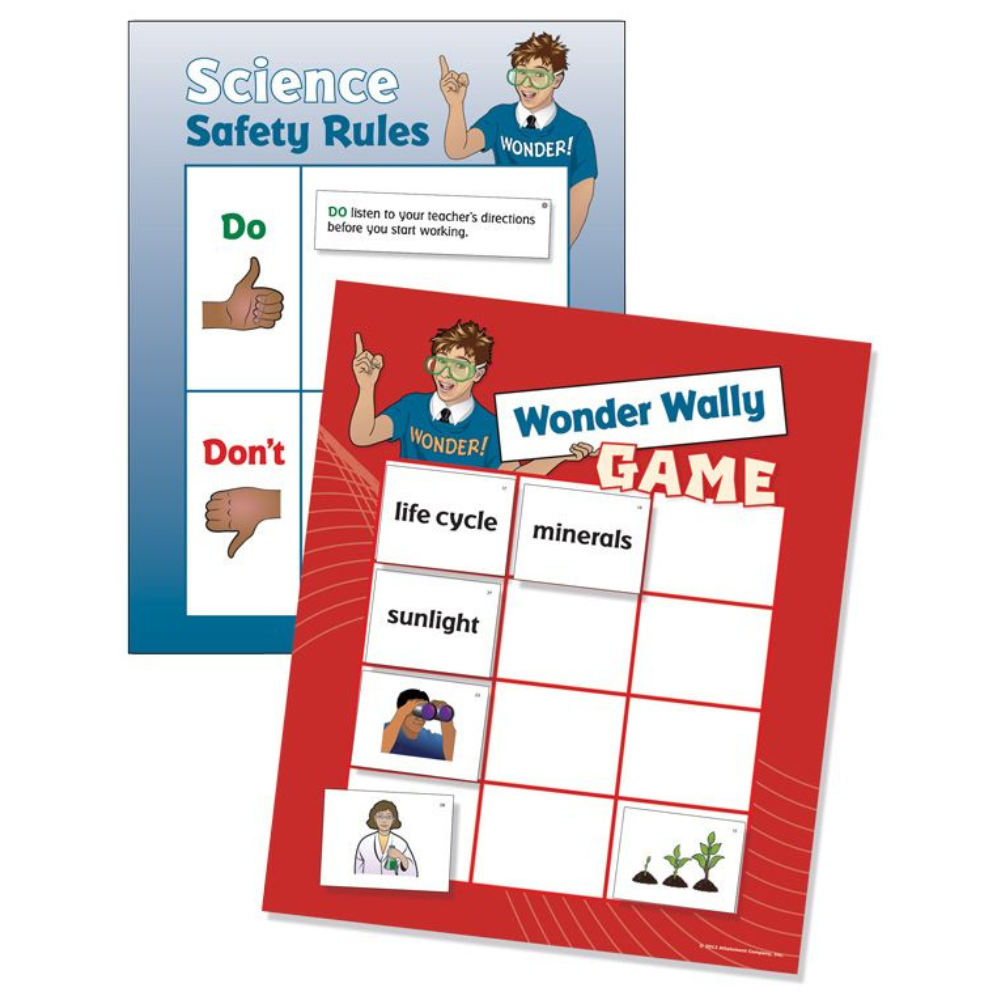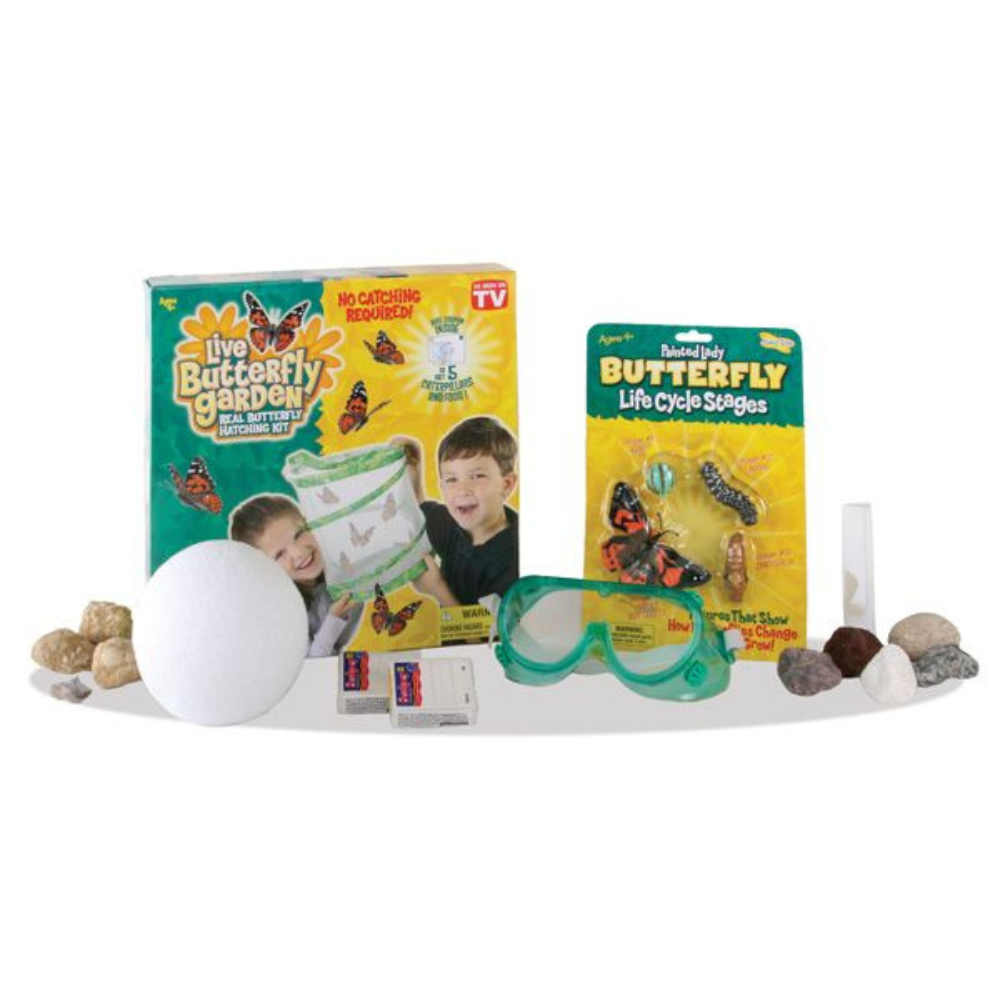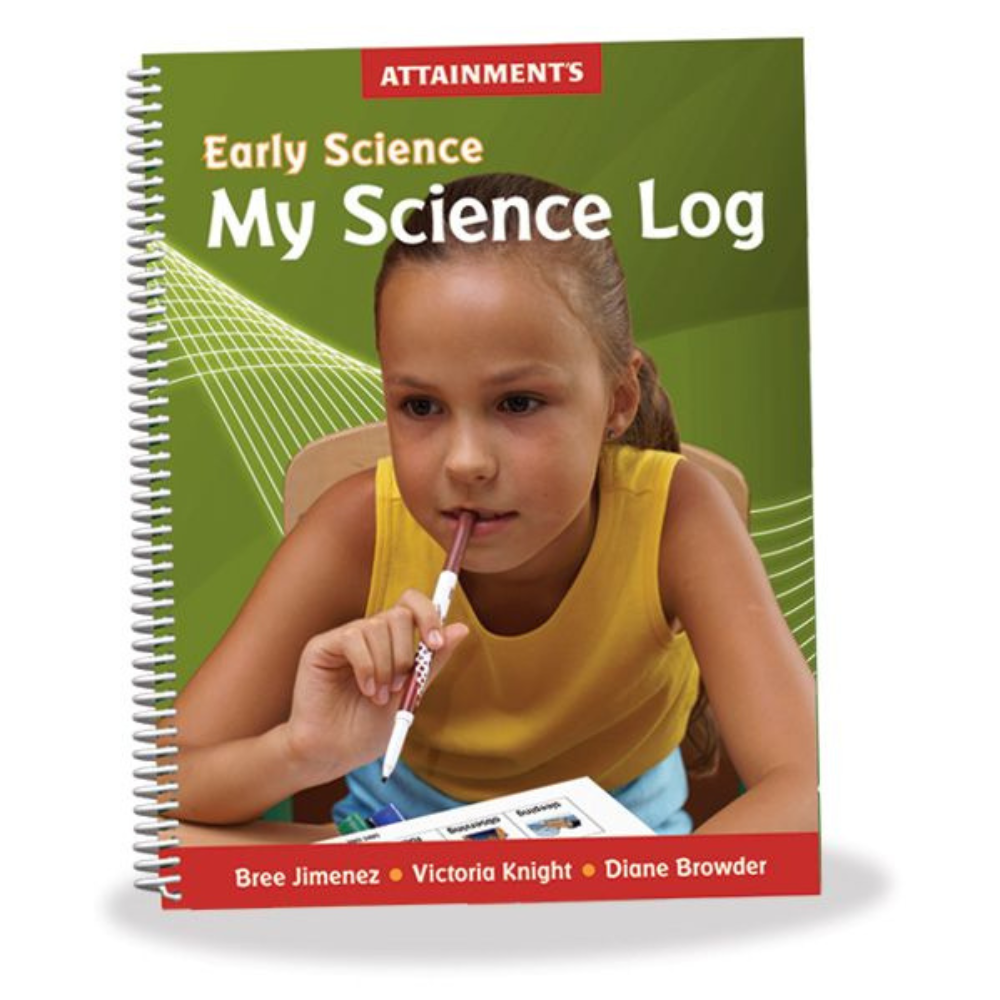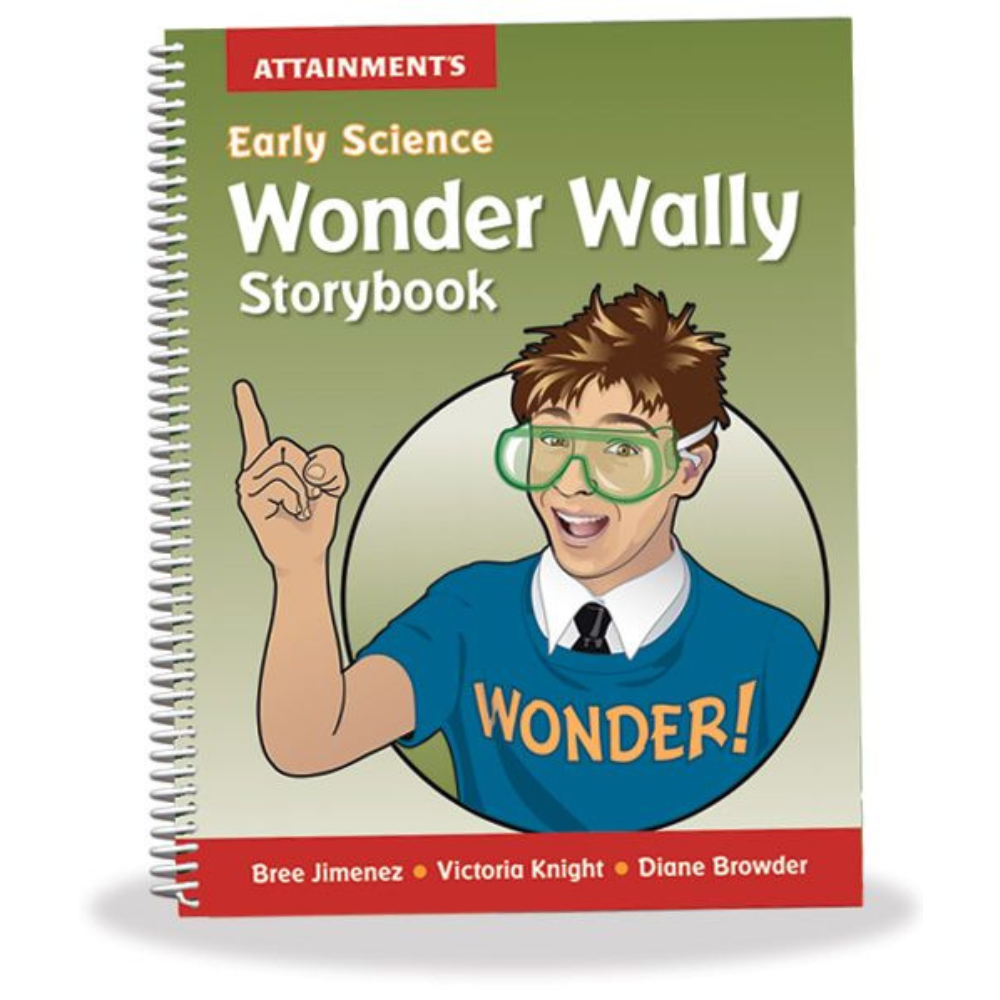Early Science
Early Science
By Bree Jimenez, PhD; Victoria Knight, PhD; and Diane Browder, PhD
Grades K - 5 | Ages 4 - 11
SKU:#ESC30W
Differentiated Instruction
Differentiated Instruction
Early Science integrates individualized student objectives to encourage active participation and access to learning.
Data Capture
Data Capture
Early Science includes ongoing assessments and progress monitoring tools to capture data and document student achievement.
Research Based
Research Based
Early Science uses highly effective instructional strategies supported by research to promote student learning and progress.
Couldn't load pickup availability
- We Accept Purchase Orders!
- Fully Secured SSL Checkout
- 30-Day Return Policy
Share
A targeted program designed to help elementary students with developmental disabilities learn foundational science skills through engaging activities and lessons.
Early Science is a research-based and standards-based science curriculum. It is a precursor for secondary curricula like Teaching to Standards: Science.
Why teachers and educators love the Early Numeracy curriculum:
- Core concepts include the five senses, the rock cycle, the earth and sky, and the life cycle.
- Aligned to Next Generation Science Standards and National Science Education Standards.
- Includes materials and manipulatives for experiments to increase generalization, attention, and understanding.
- Provides teaching framework for future lessons and standards to extend the curriculum.
- Customized to teach students with an intellectual disability or autism.
- Student Science Logs are available for individual progress monitoring.
What makes this early science curriculum so effective?
Systematic Lessons That Meet Education Standards
The content in the Early Science curriculum is aligned with general education standards and taught systematically by incorporating scripted lessons, least intrusive prompt strategies, teachable objectives, and ongoing assessments. The curriculum is appropriate for kindergarten through grade 5 students, including those with autism.
28 Standard Sequence Lessons
The 28 included in the Early Science curriculum lessons follow a standard sequence. Students engage with the lessons by discussing Wonder Stories, investigating through hands-on experiments, describing and explaining concept statements using vocabulary cards, posters, and games, and reporting findings in their My Science Log books.
Additional Features
- Four units (Five Senses, Rock Cycle, Earth and Sky, and Life Cycle) focus on the most frequently occurring science standards
- A list of skill-building benchmarks plus general education alignment objectives
- Embedded instructions for technology
- A chain of responses to guide students
- Scripted lessons to increase teacher fidelity and reduce prep time
- Progress reports using My Science Logs and end-of-unit assessments
The Early Science Curriculum Plus complete learning kit includes:
- 4 Teacher’s Guides: The Five Senses (108 pages), The Rock Cycle (104 pages), Earth and Sky (108 pages), The Life Cycle (106 pages)
- Implementation Guide (66 pages)
- Wonder Wally Storybook (110 pages)
- 1 copy of the My Science Log Student Book (120 pages)
- Safety and KWHL posters
- Wonder Wally game
- Vocabulary cards
- Photo cards
- Safety rule cards
- Concept statement cards
- Wonder question cards
- Downloadable digital resources
- 10 My Science Log consumable Student Workbooks
- The entire page set of workbook pages is accessible GoWorksheets (iPad only), and samples of communication overlays. The GoWorksheets can be used with the free GoWorksheet app or the full GoWorksheet Plus app available on the App Store.
- *All books are 8½ x 11 inches, spiral bound, and full colour.
The Curriculum Plus kit also includes Student Experiment Materials:
- 4 pairs of goggles
- 1 prism
- 4 geodes
- 3 minerals
- 4 rocks
- Butterfly stage objects and garden
- Clay
- 1 styrofoam ball
- Storage bin and cases for cards and rocks
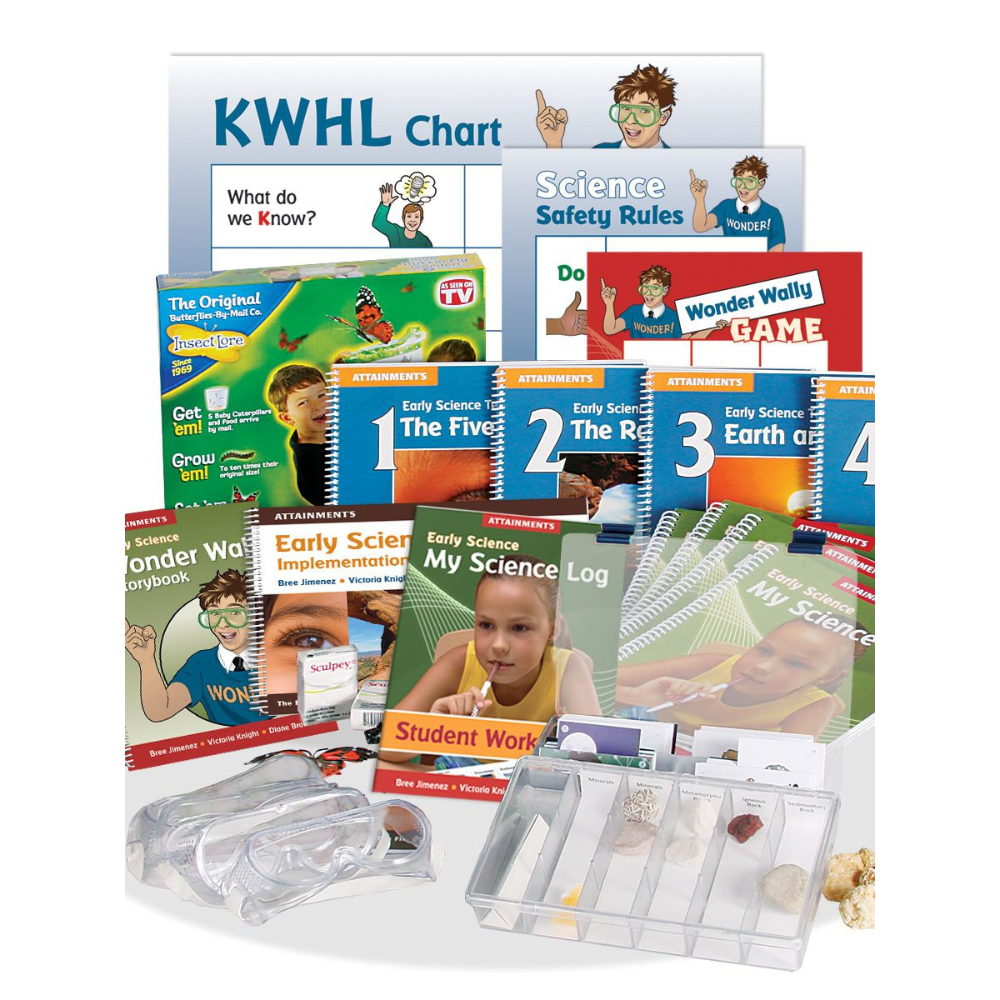
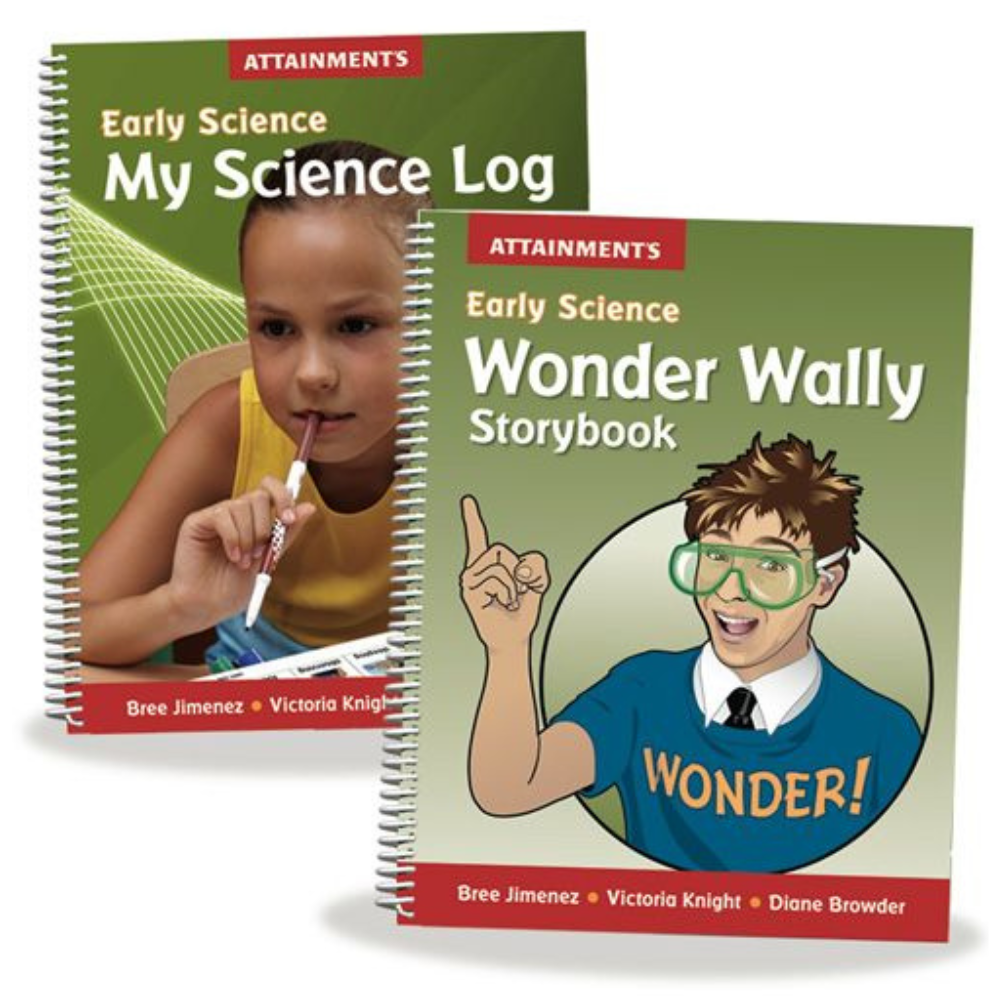
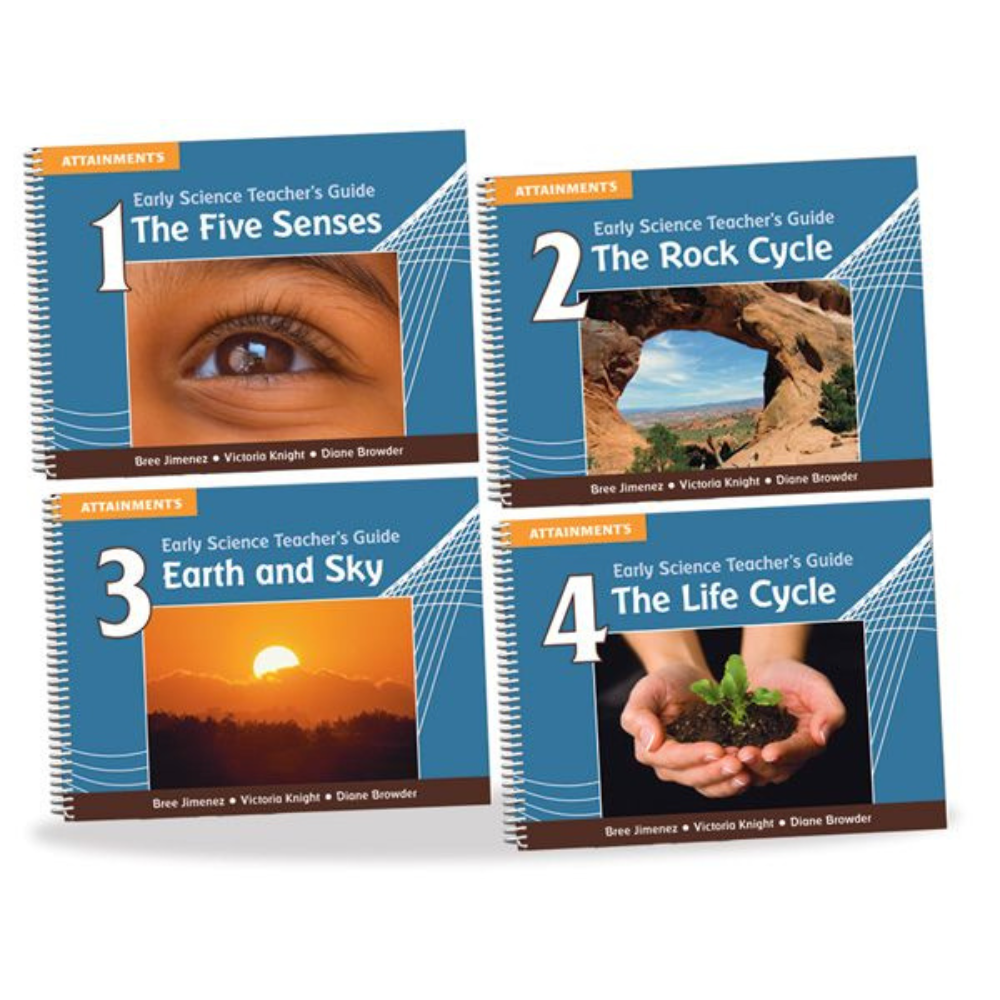
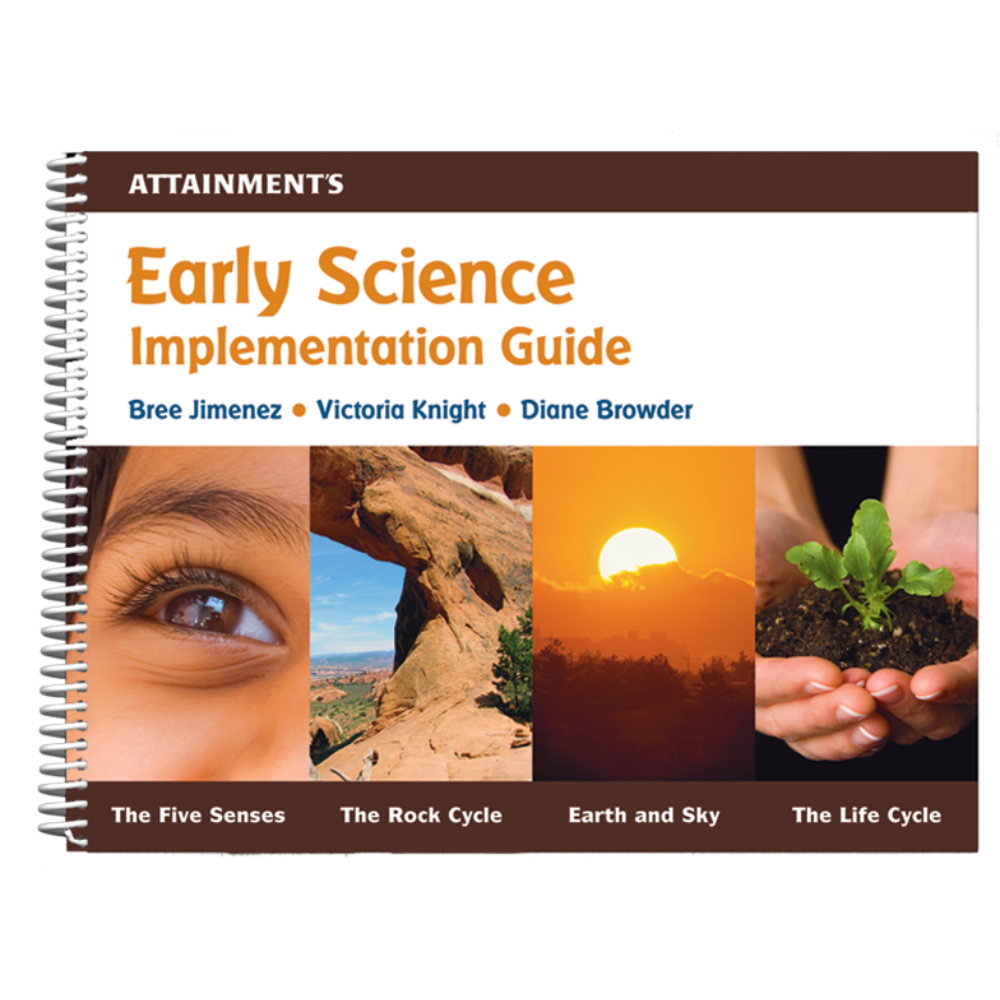
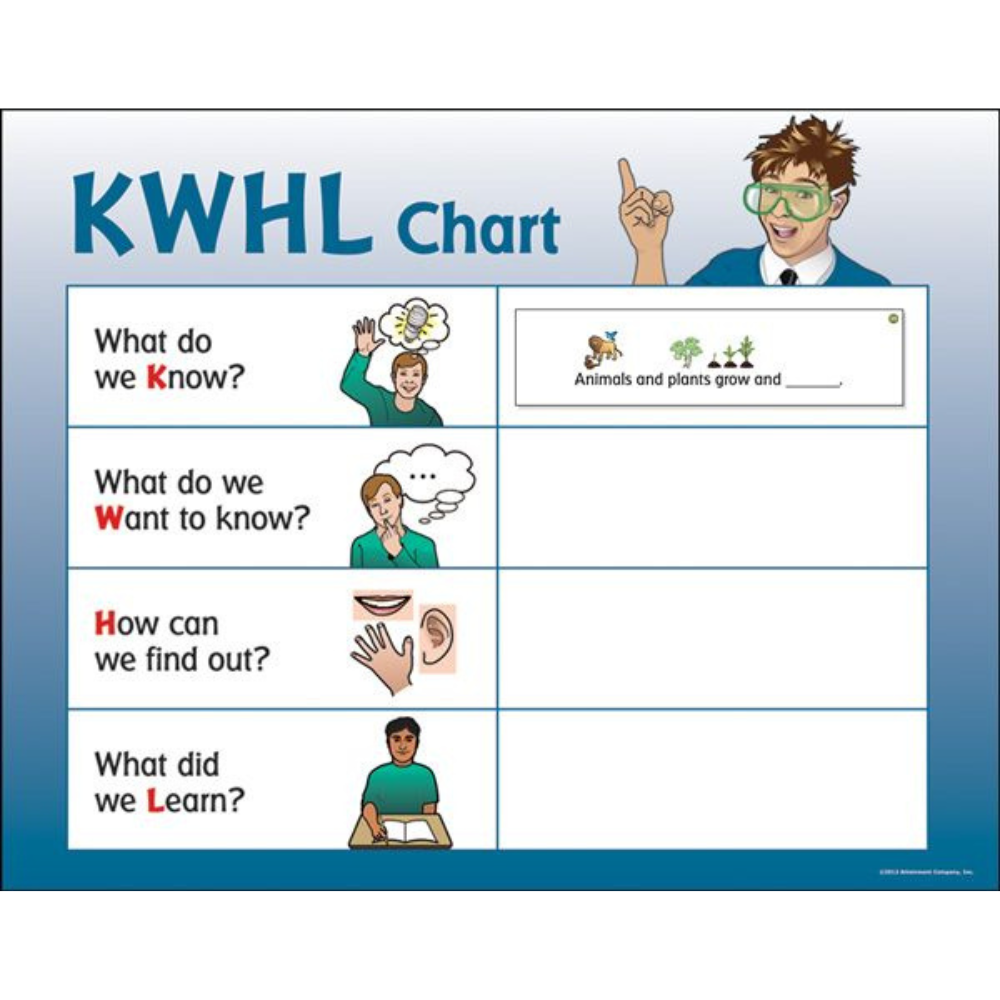
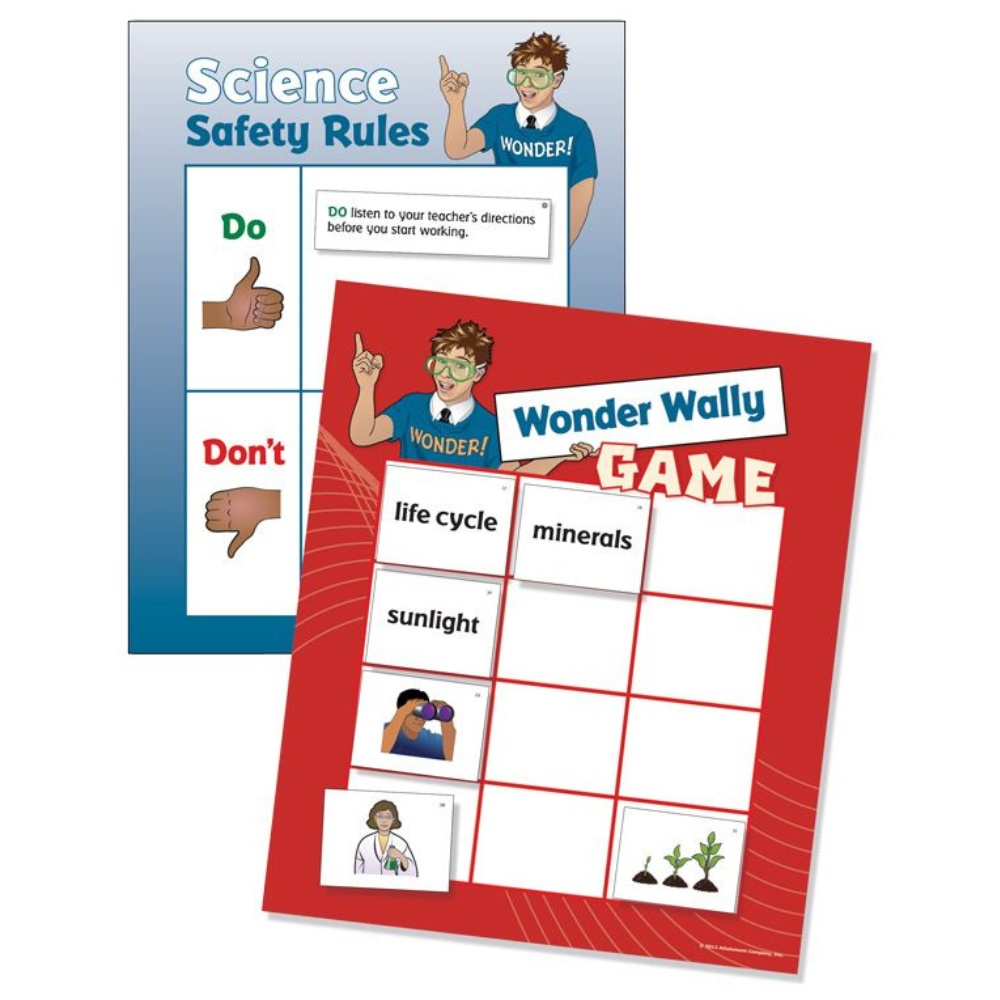
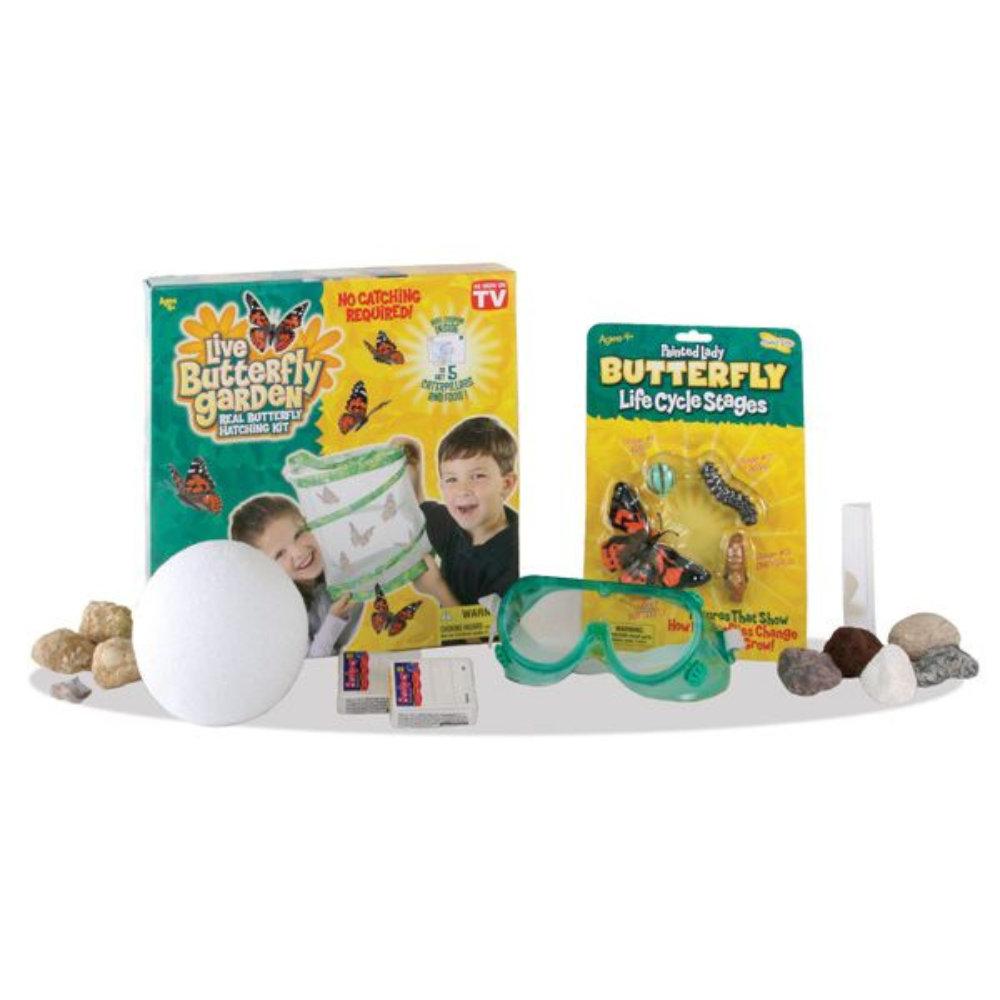
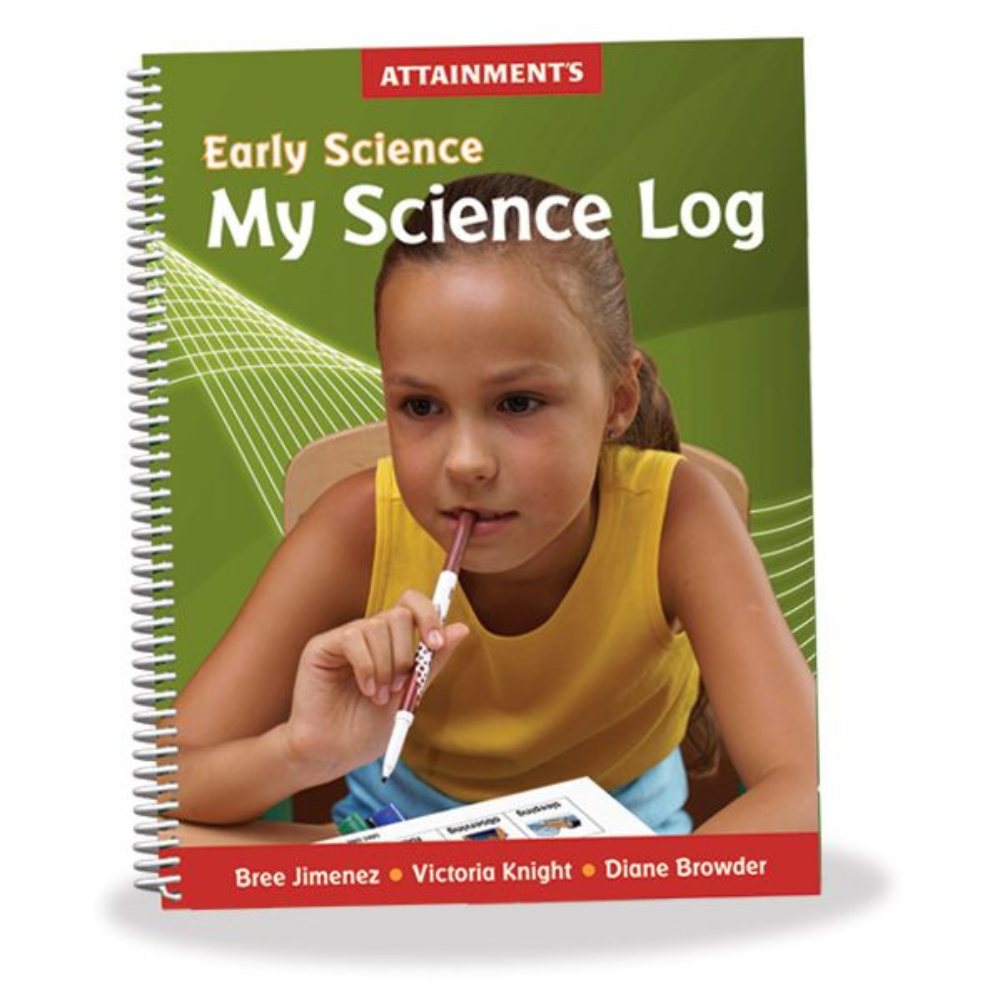
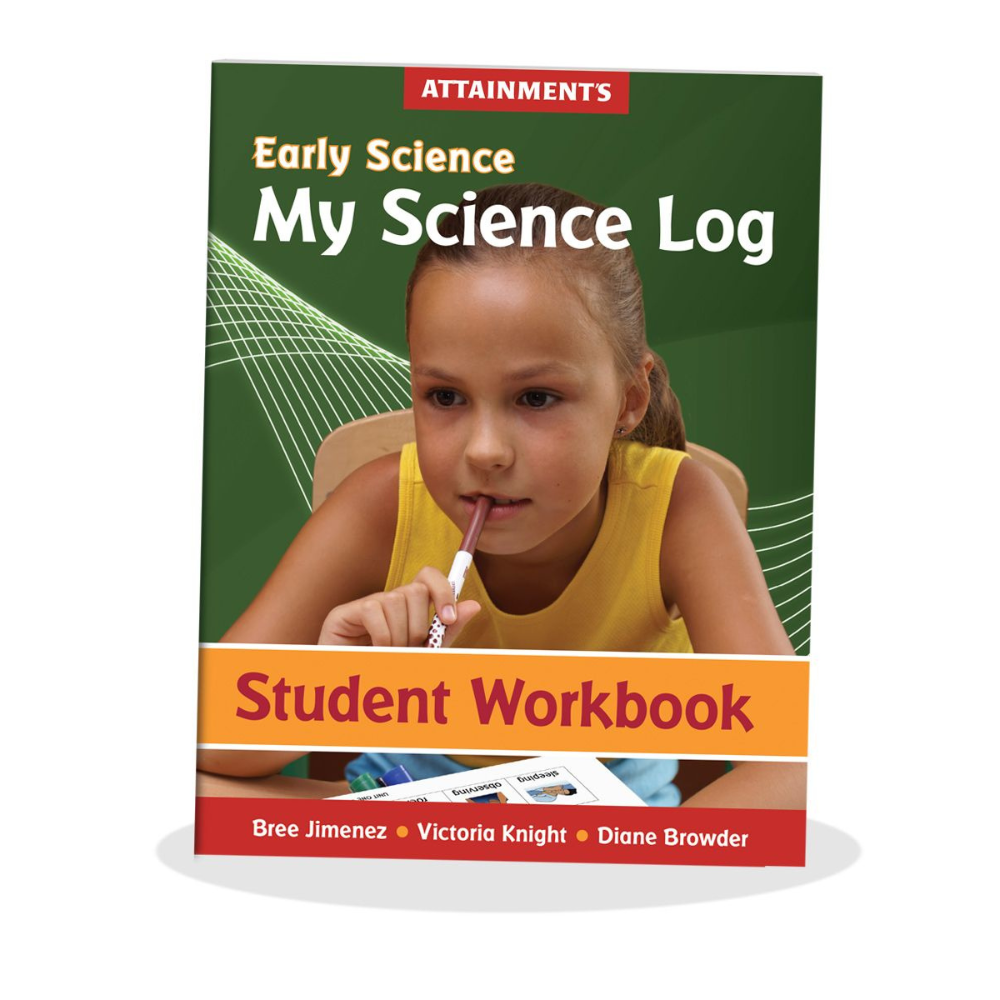
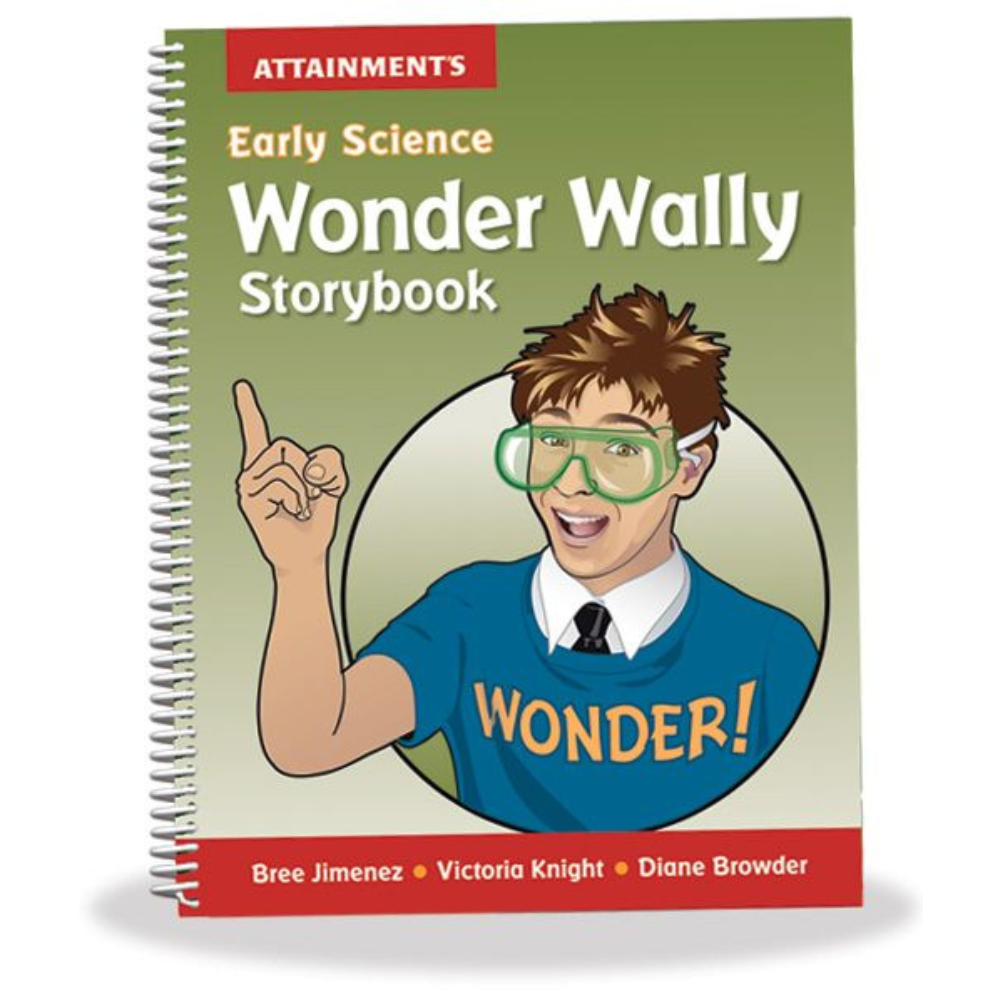
Smith, Spooner, Browder, and Jimenez (2011) demonstrated the effectiveness of the Early Science Curriculum with elementary students who have moderate-to-severe developmental disabilities, including autism. Students learned science vocabulary and concepts linked to grade-level standards.
Supporting Research Articles
Smith, B. R., Spooner, F., Jimenez, B. A., & Browder, D. (2013). Using an early science curriculum to teach science vocabulary and concepts to students with severe developmental disabilities.Education & Treatment of Children, 36, 1-31.
